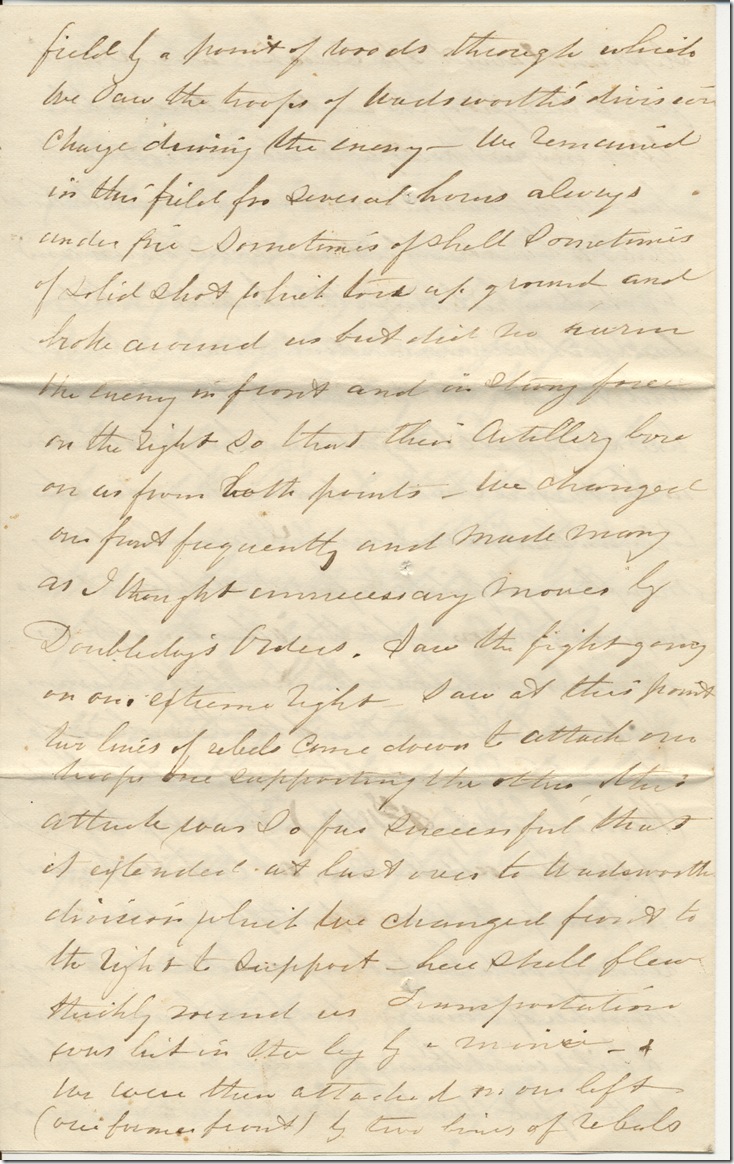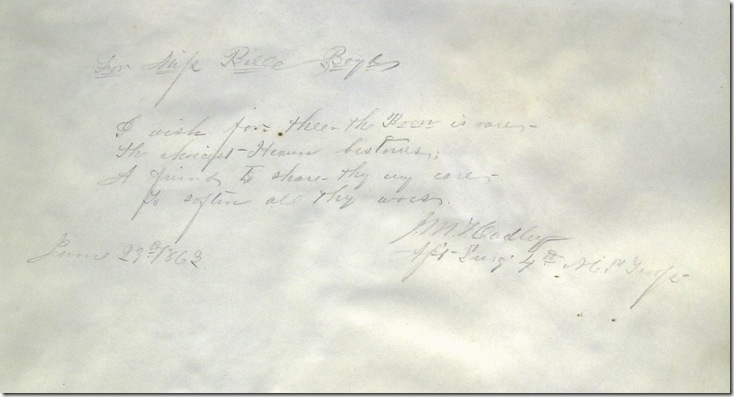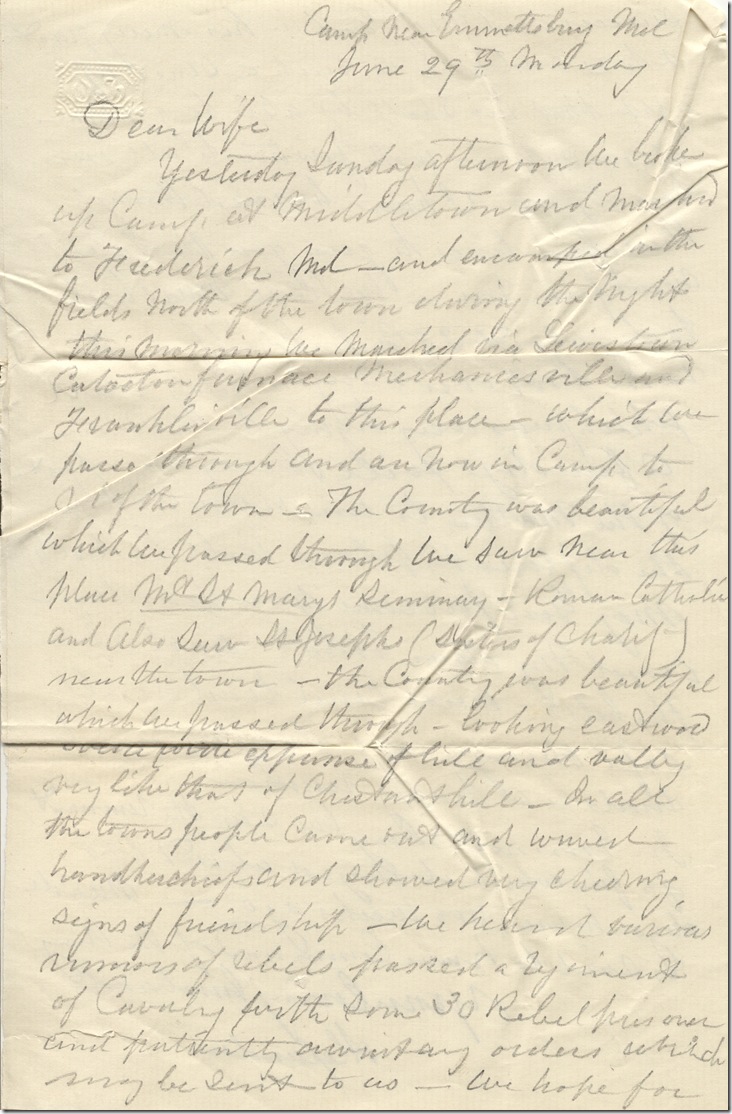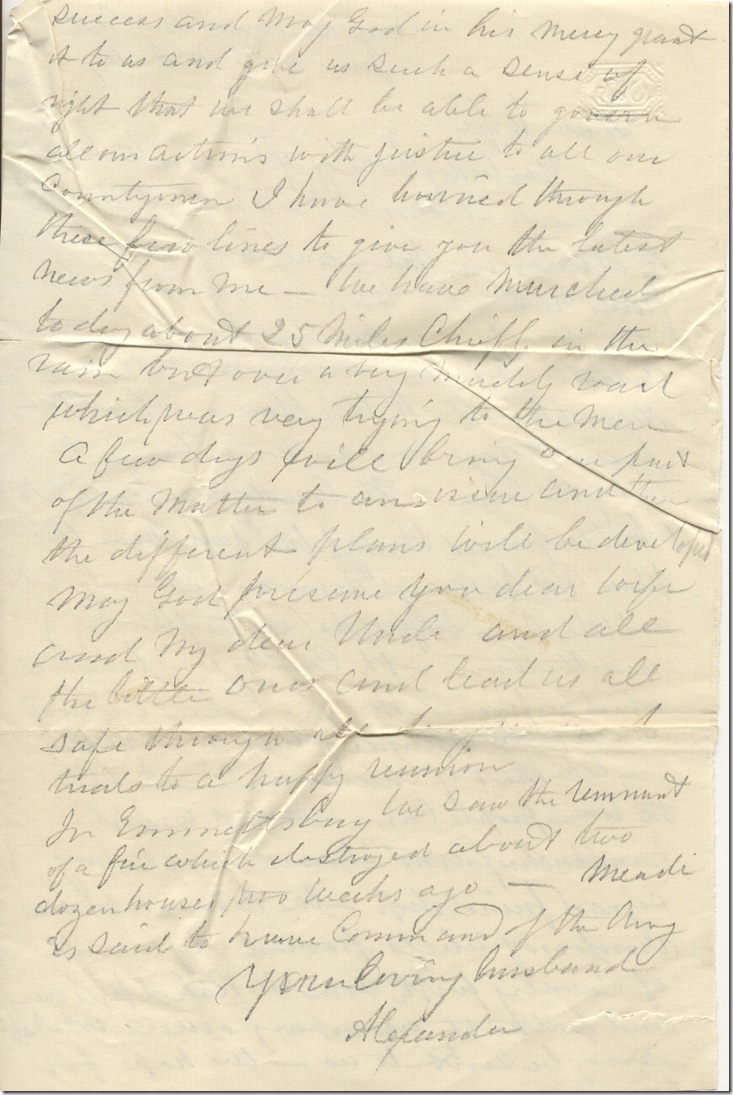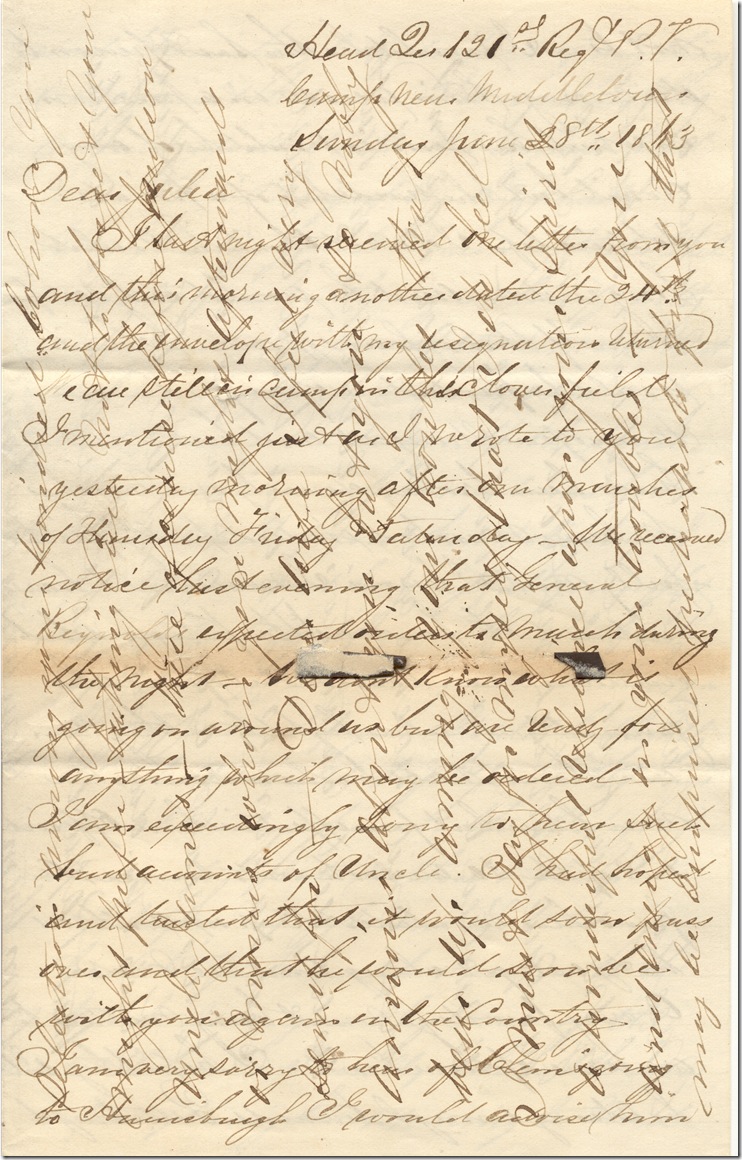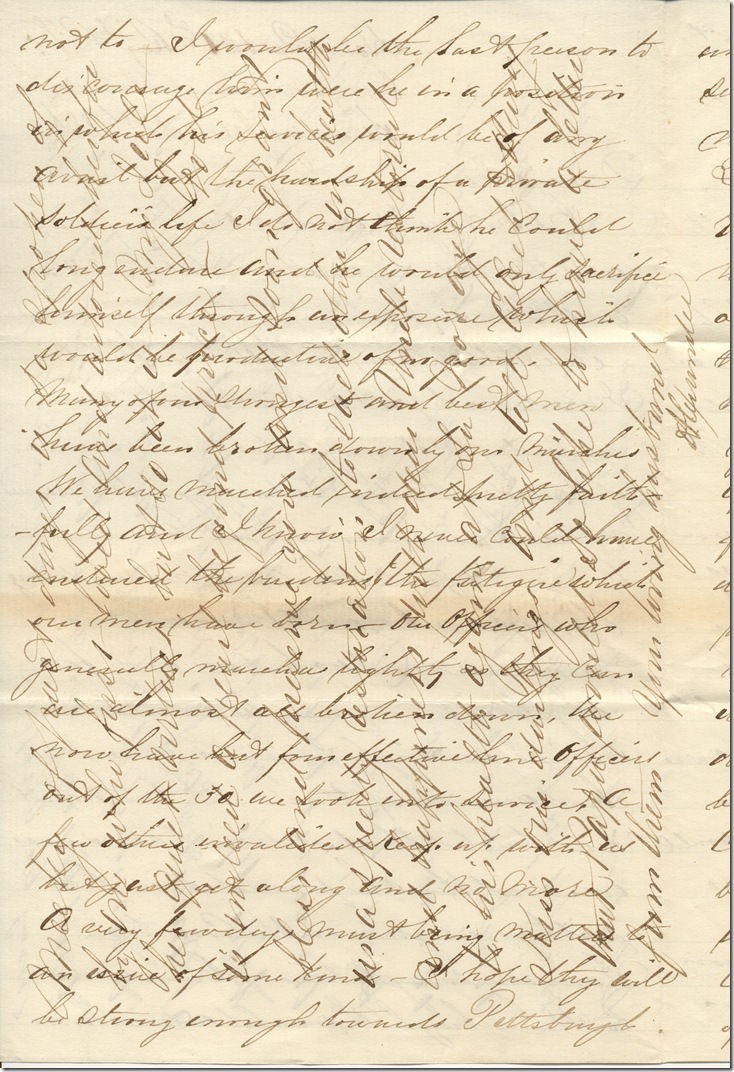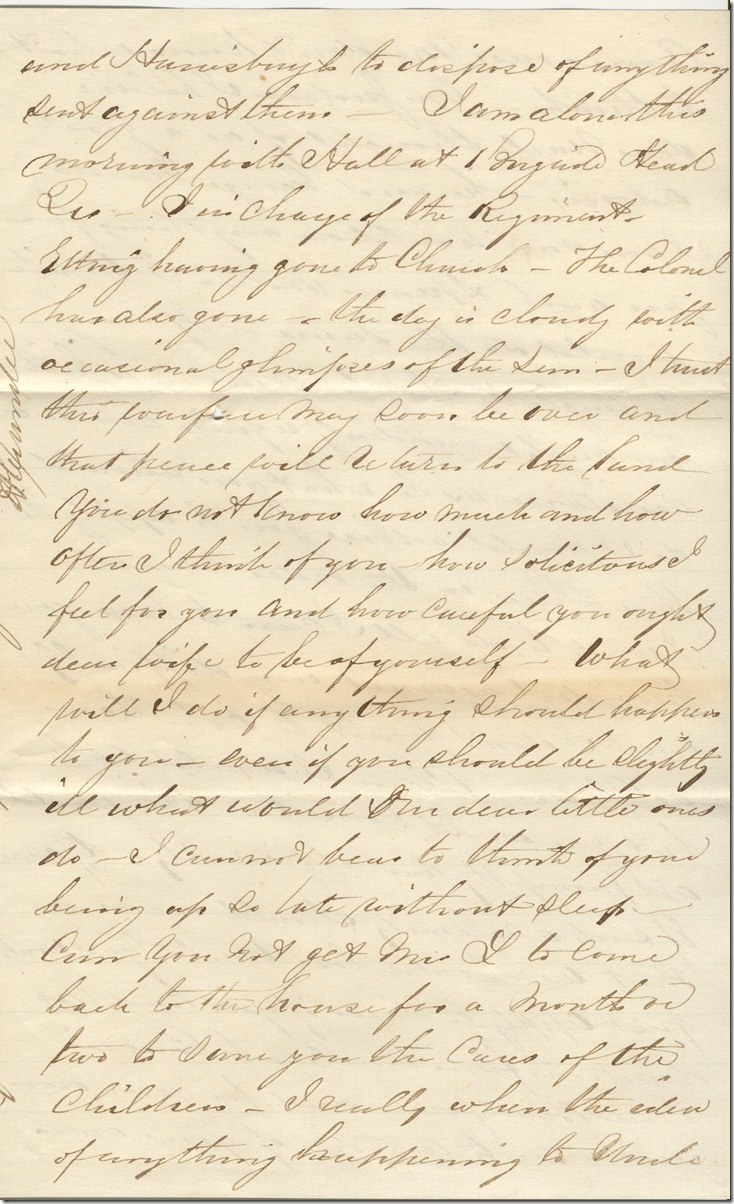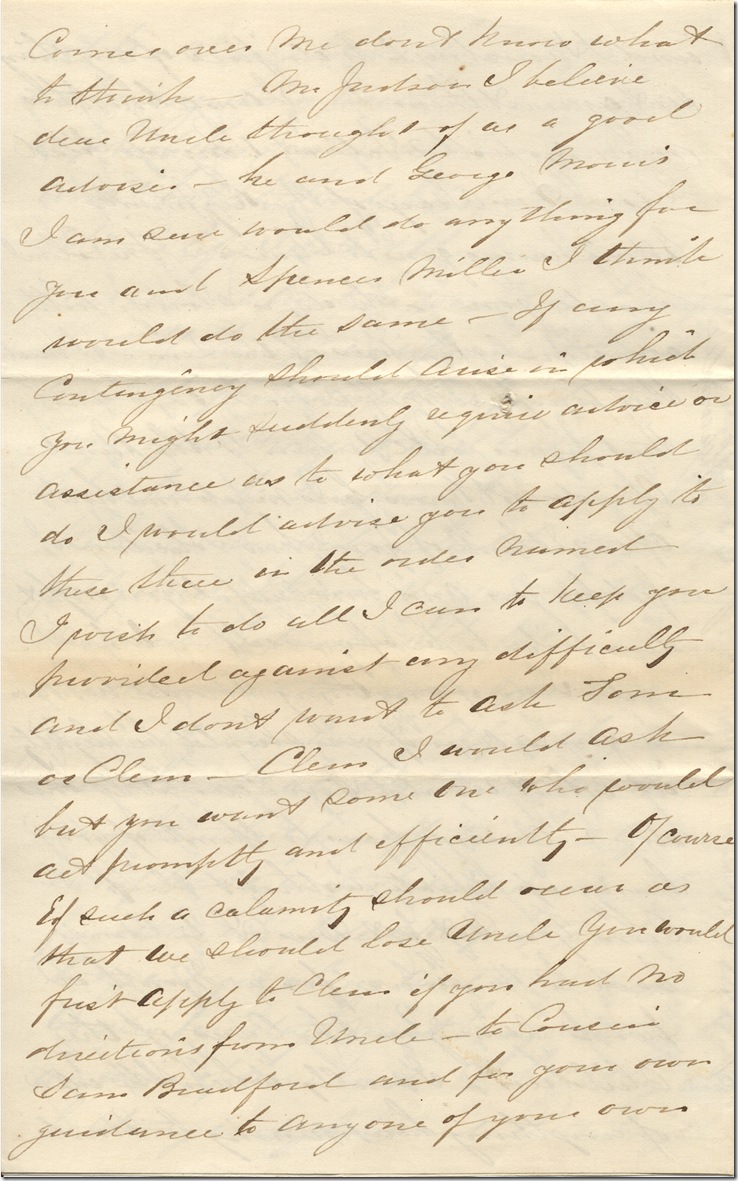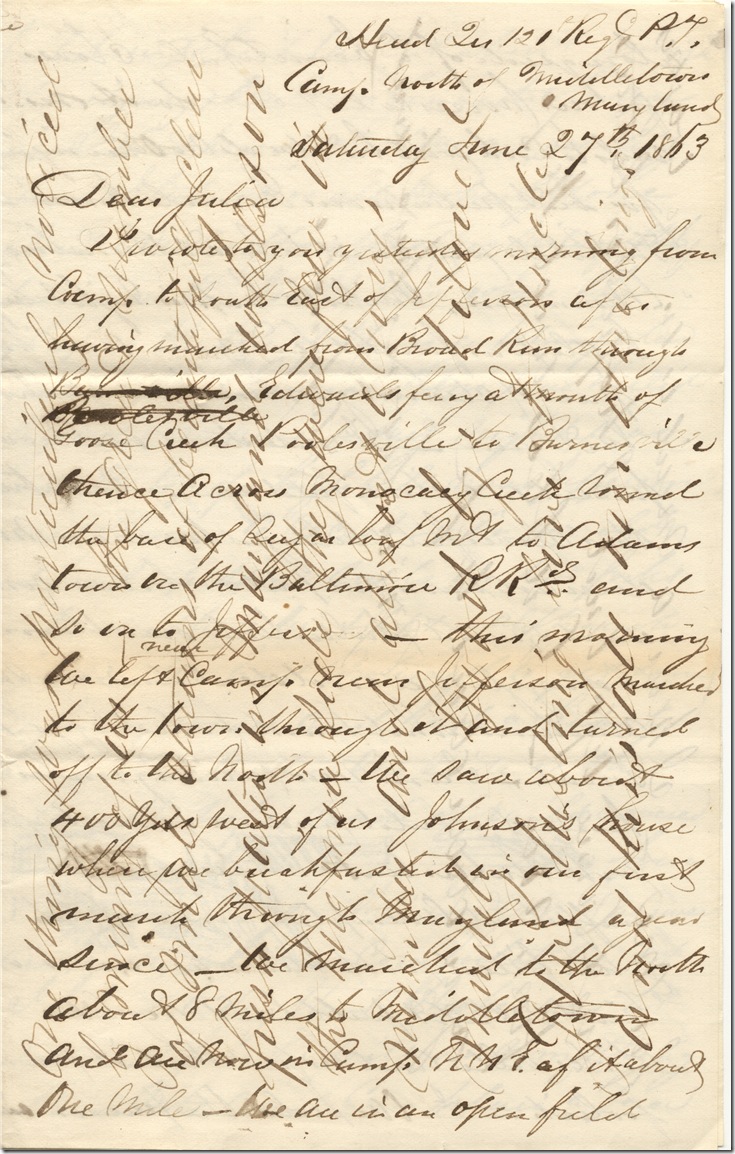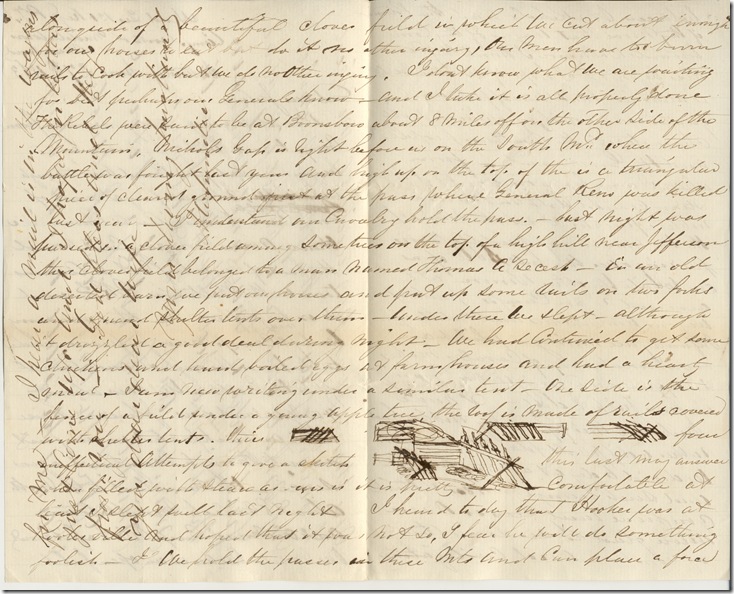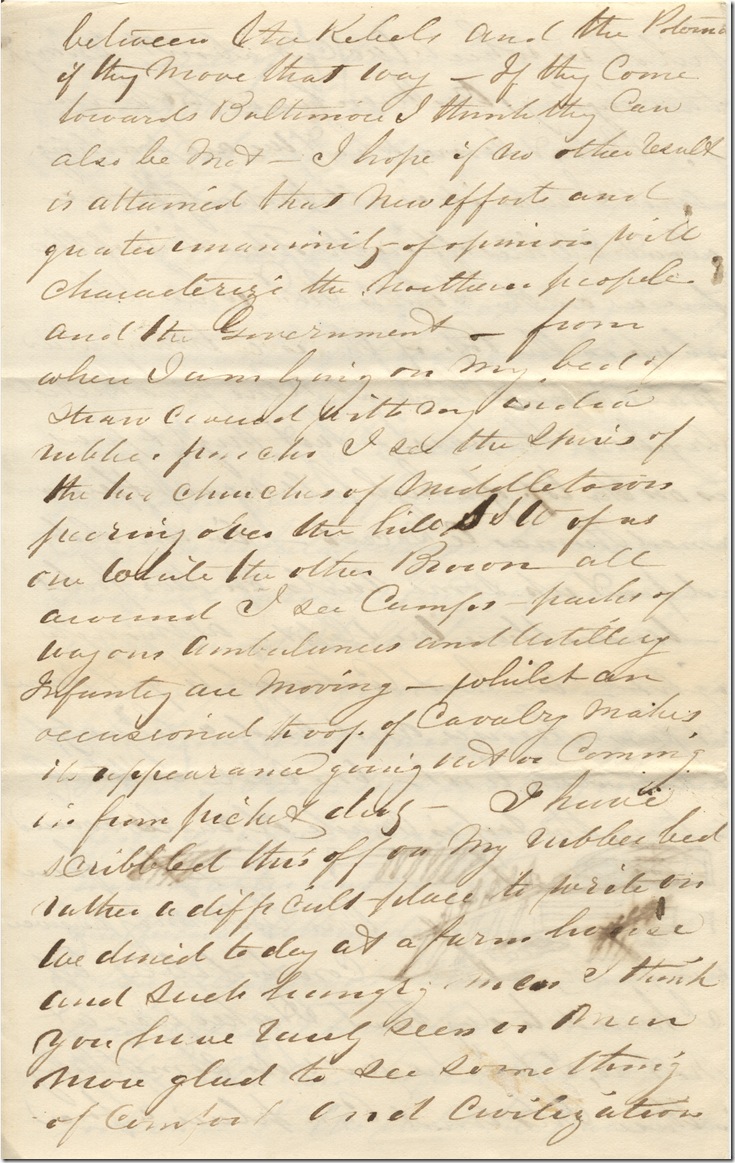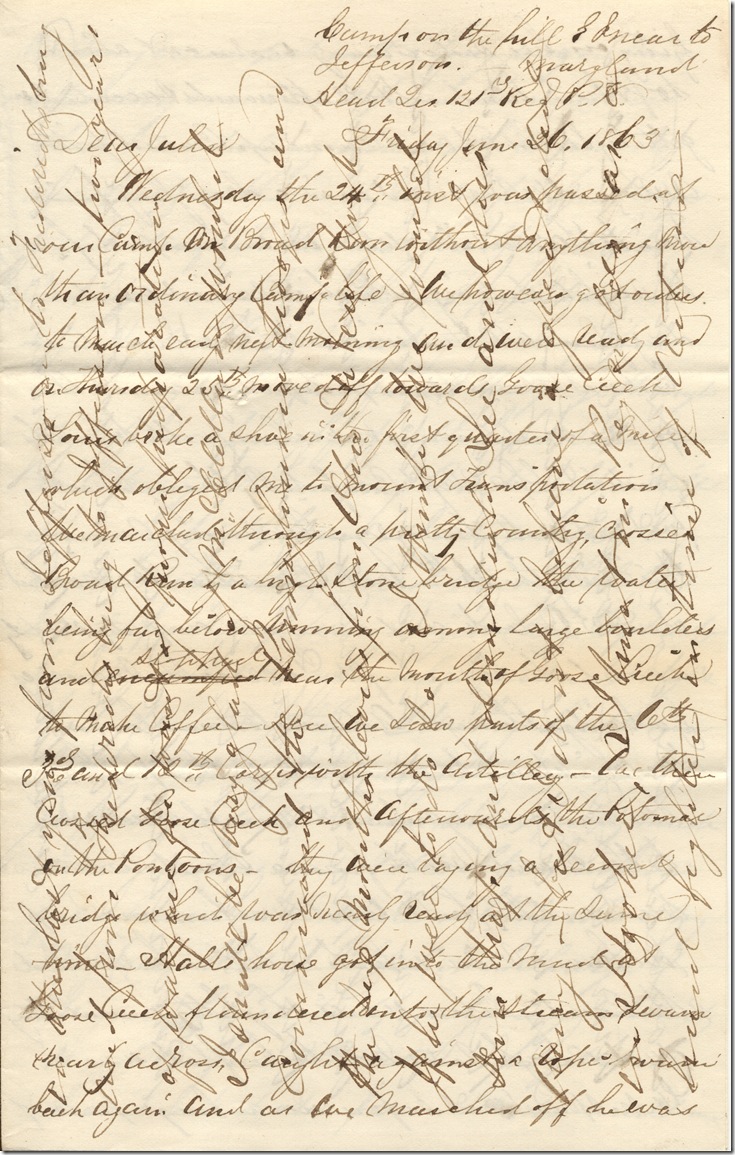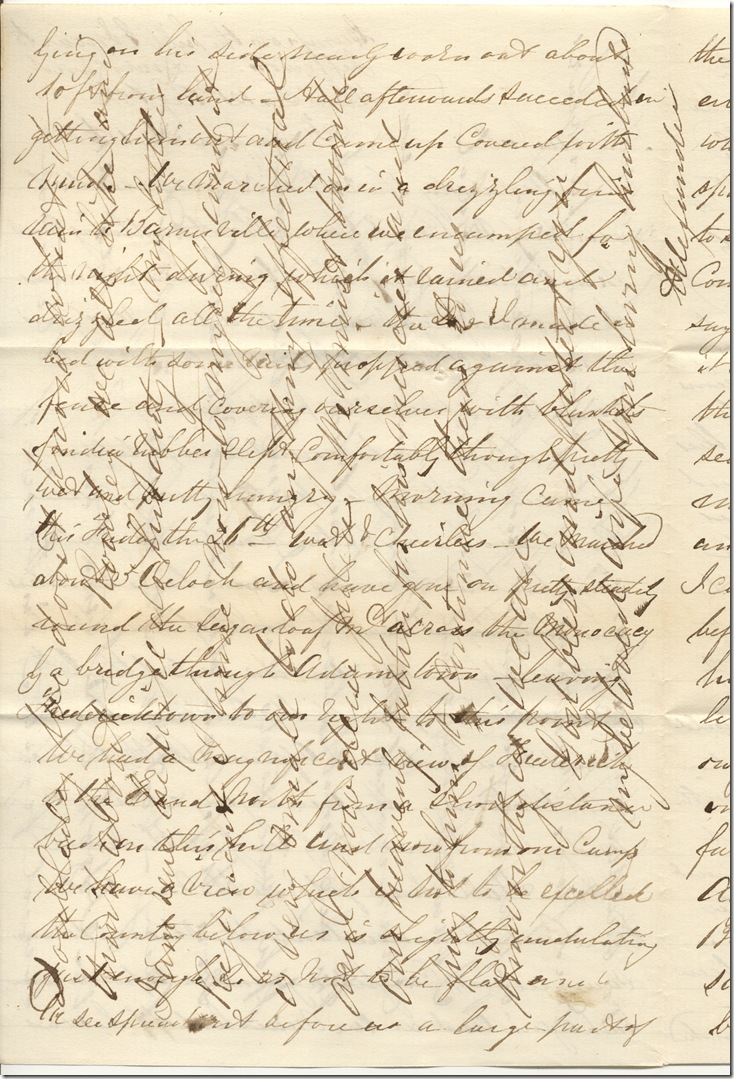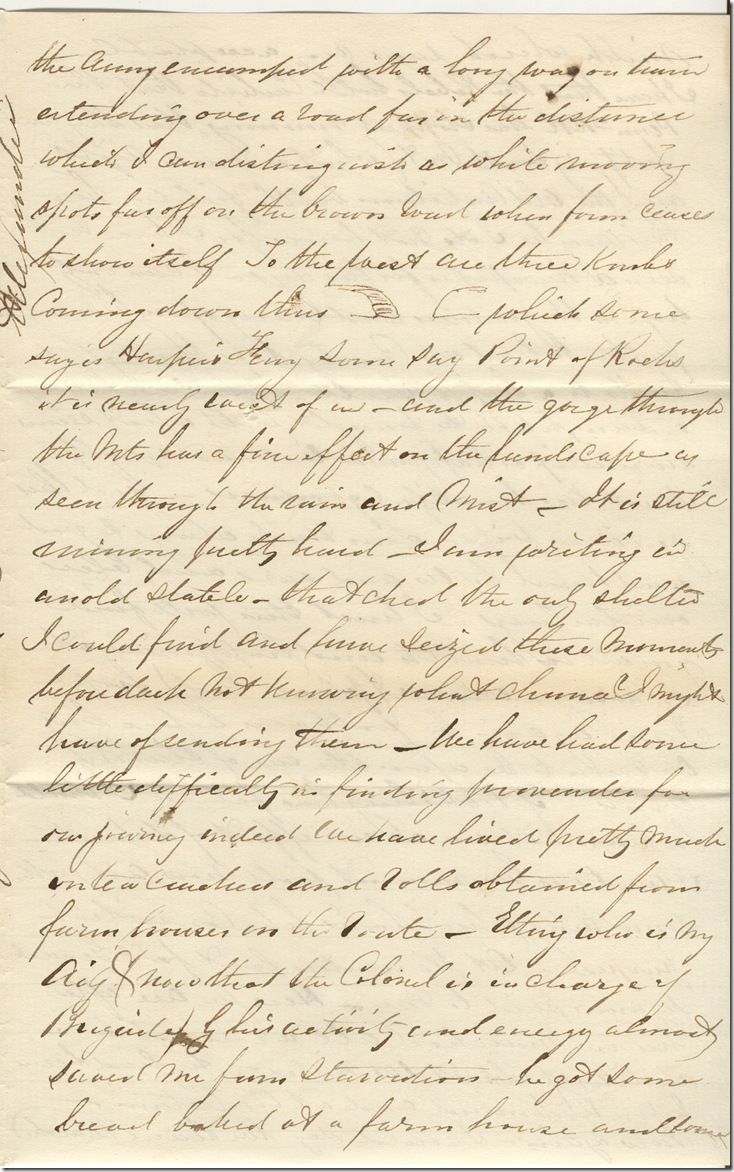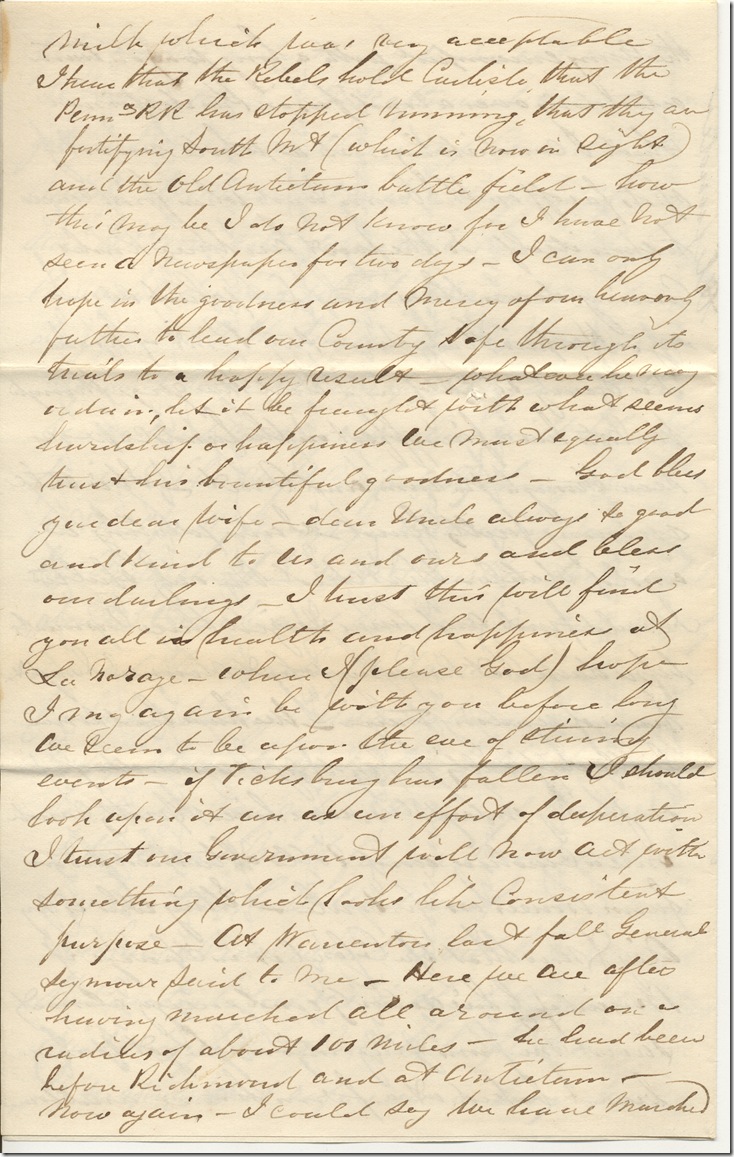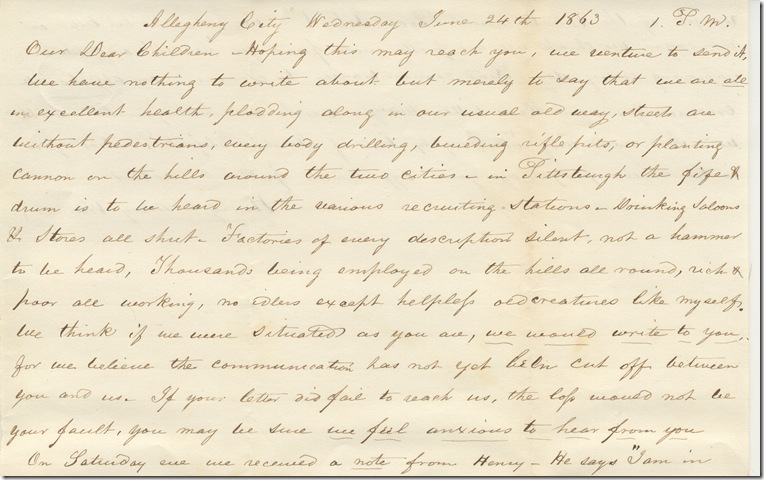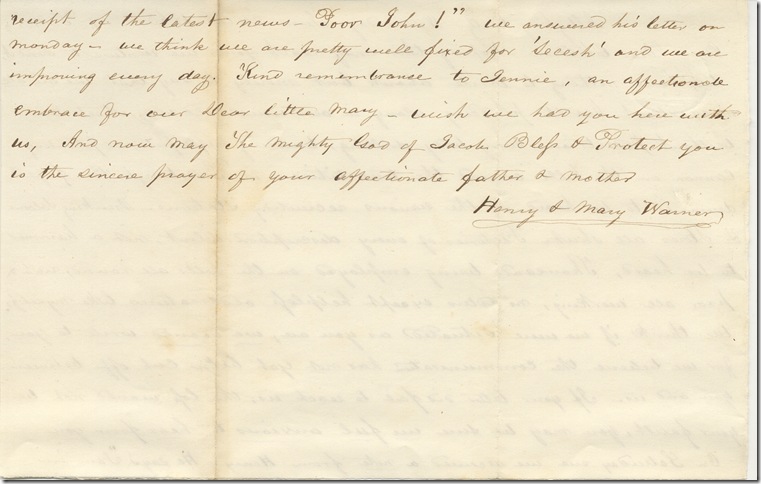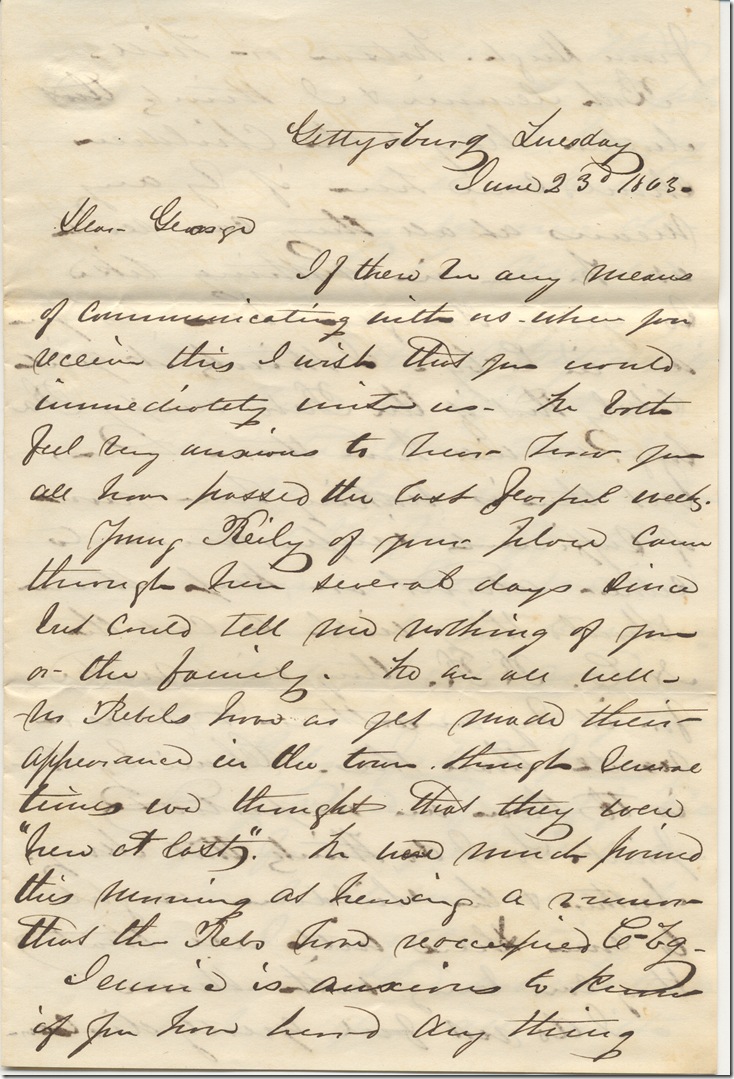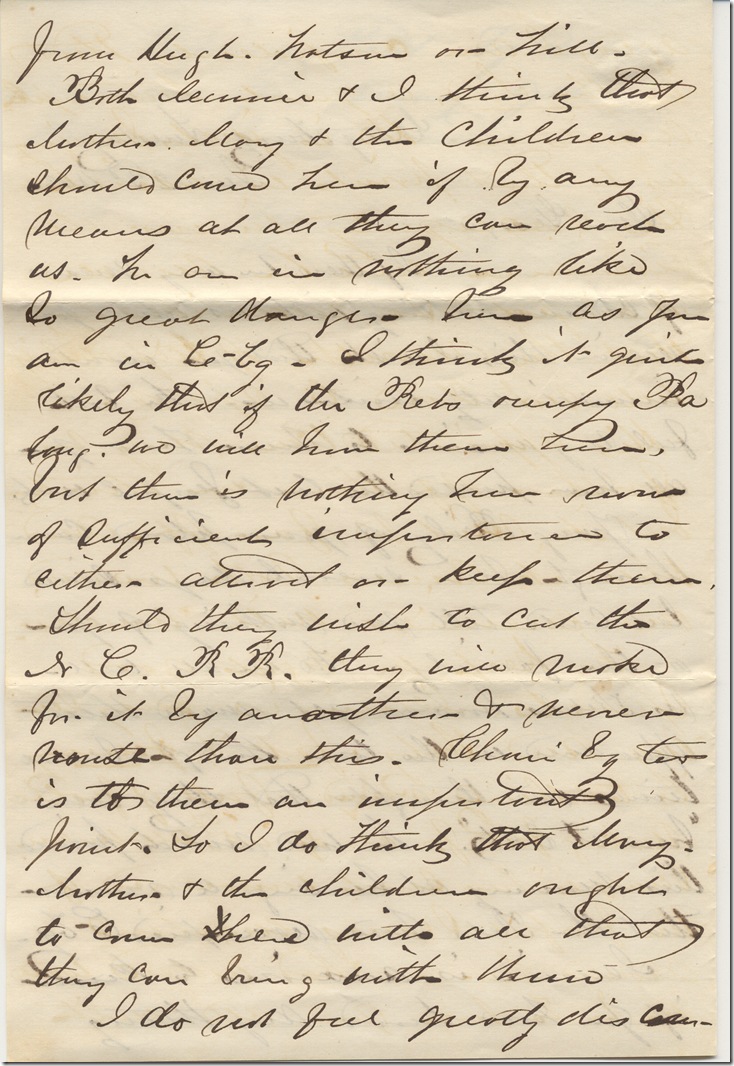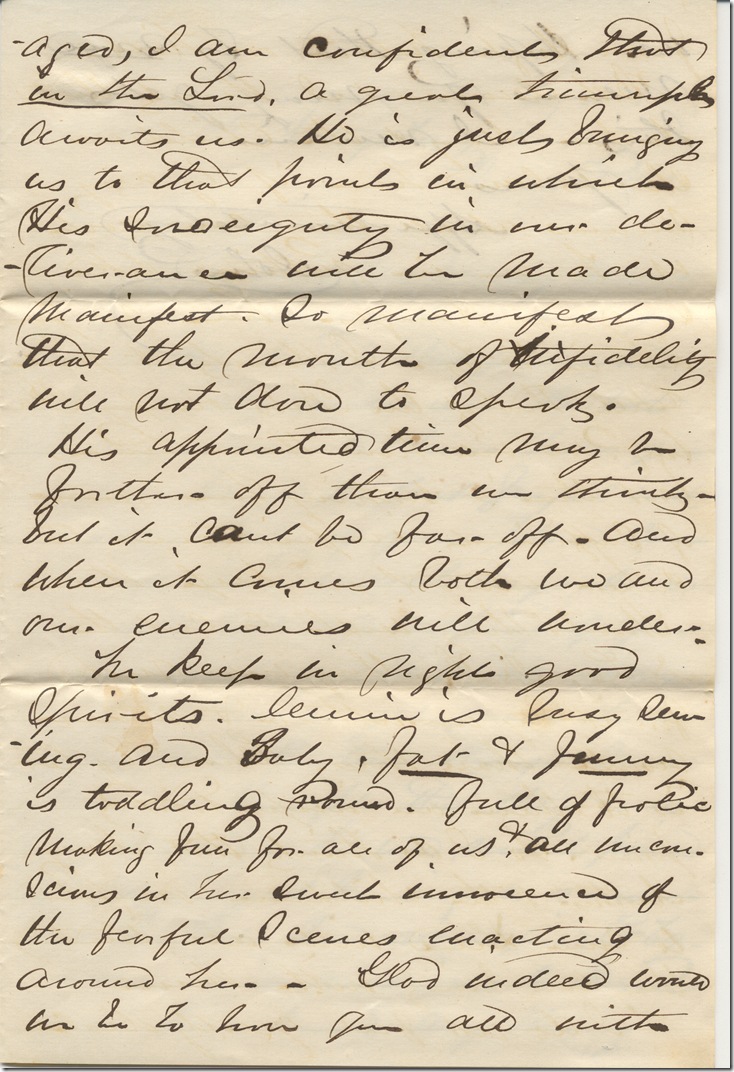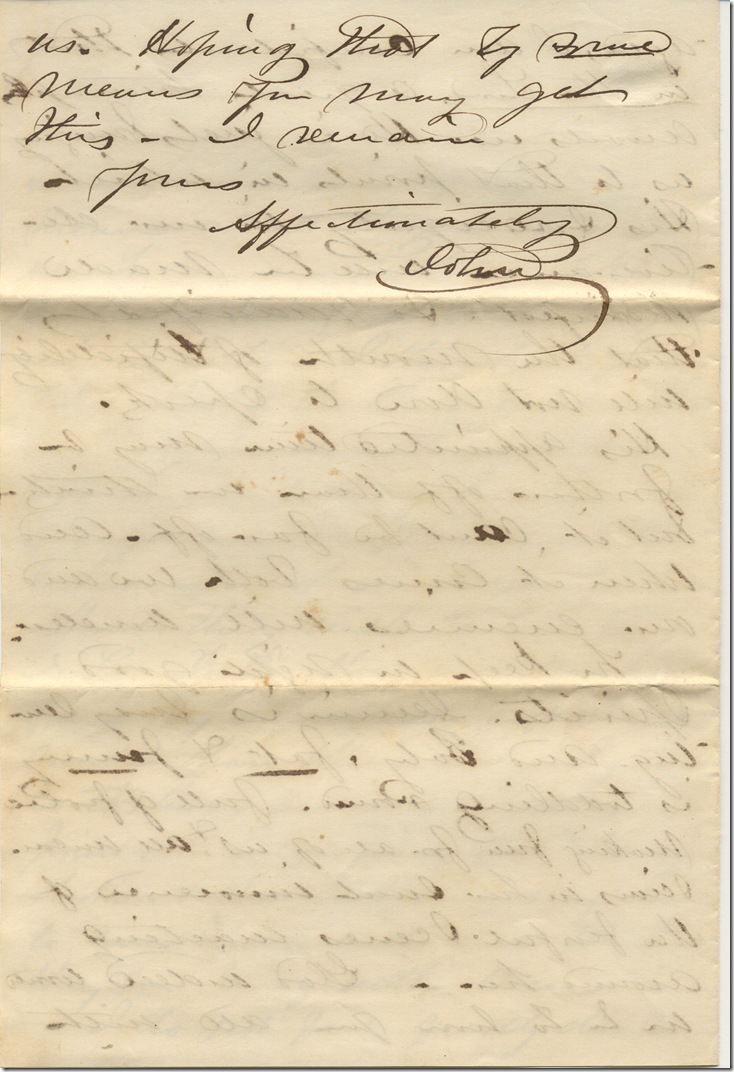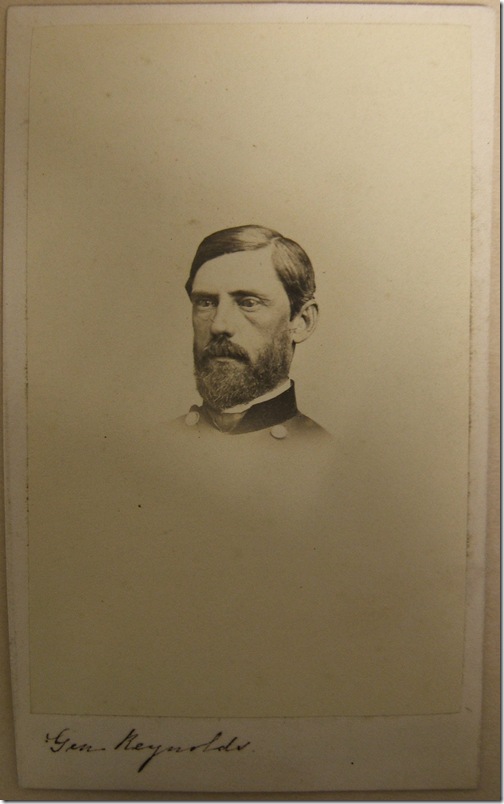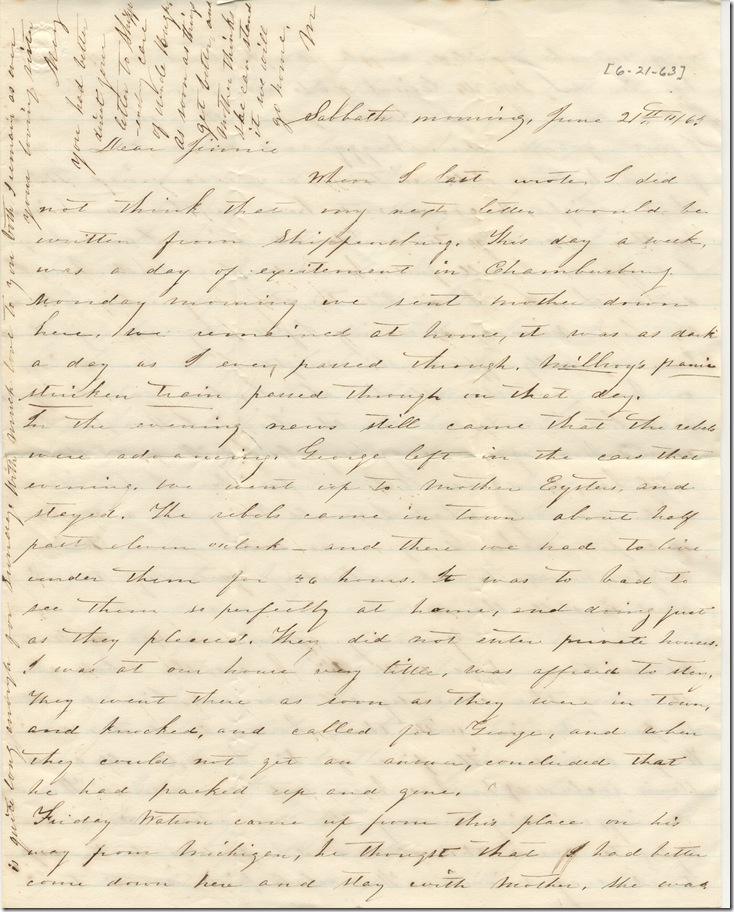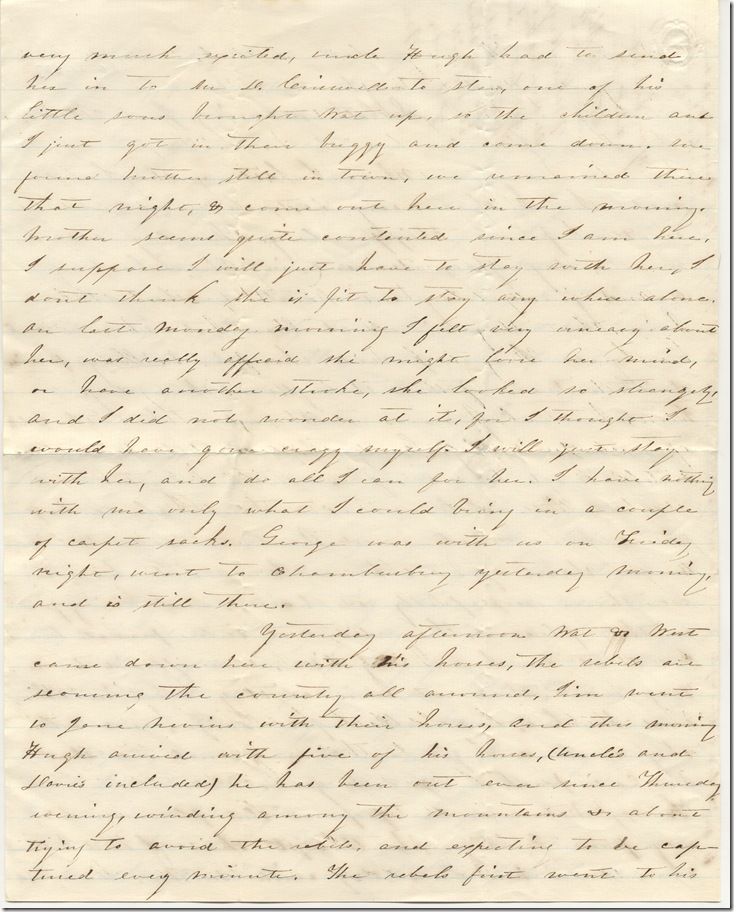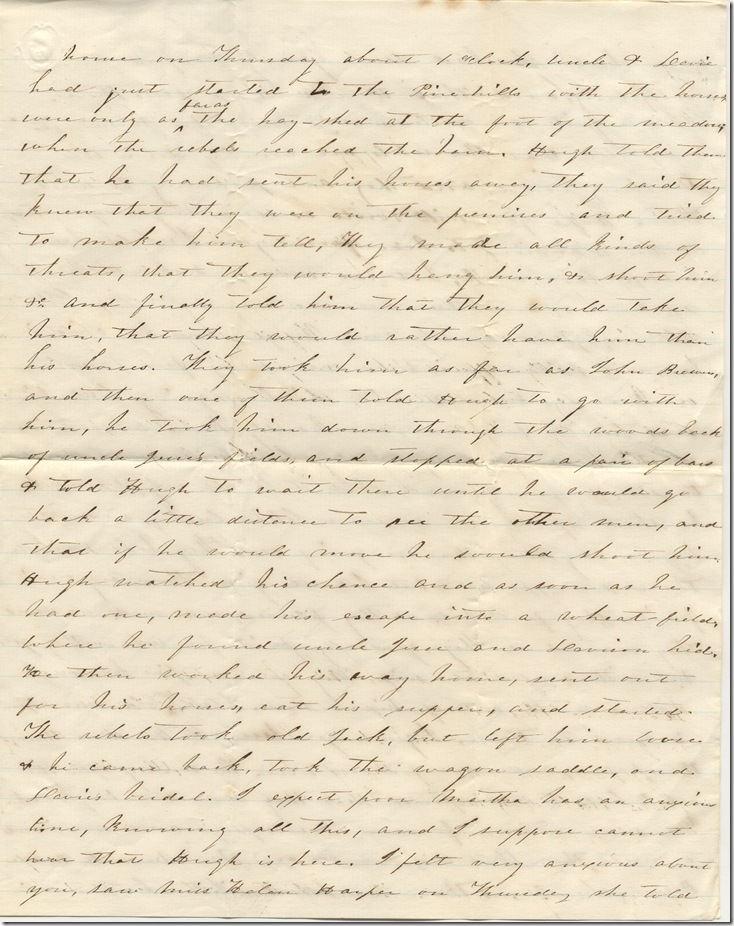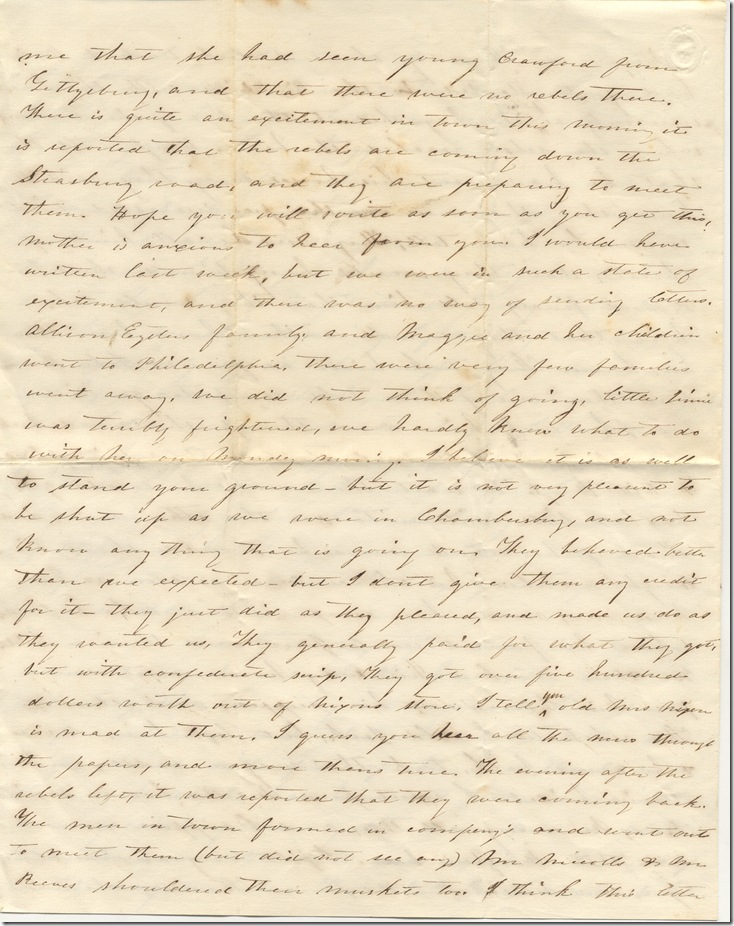Alexander Biddle was a member of the prominent Philadelphia Biddle family and was married to Julia Williams Rush, the granddaughter of Dr. Benjamin Rush. Biddle served with the 121st Pennsylvania Volunteer Infantry, beginning in September 1862. Starting out as a major, he would participate in Fredericksburg and Gettysburg, among other engagements, and would leave the service as a lieutenant colonel. (He was commissioned, but never mustered, as colonel)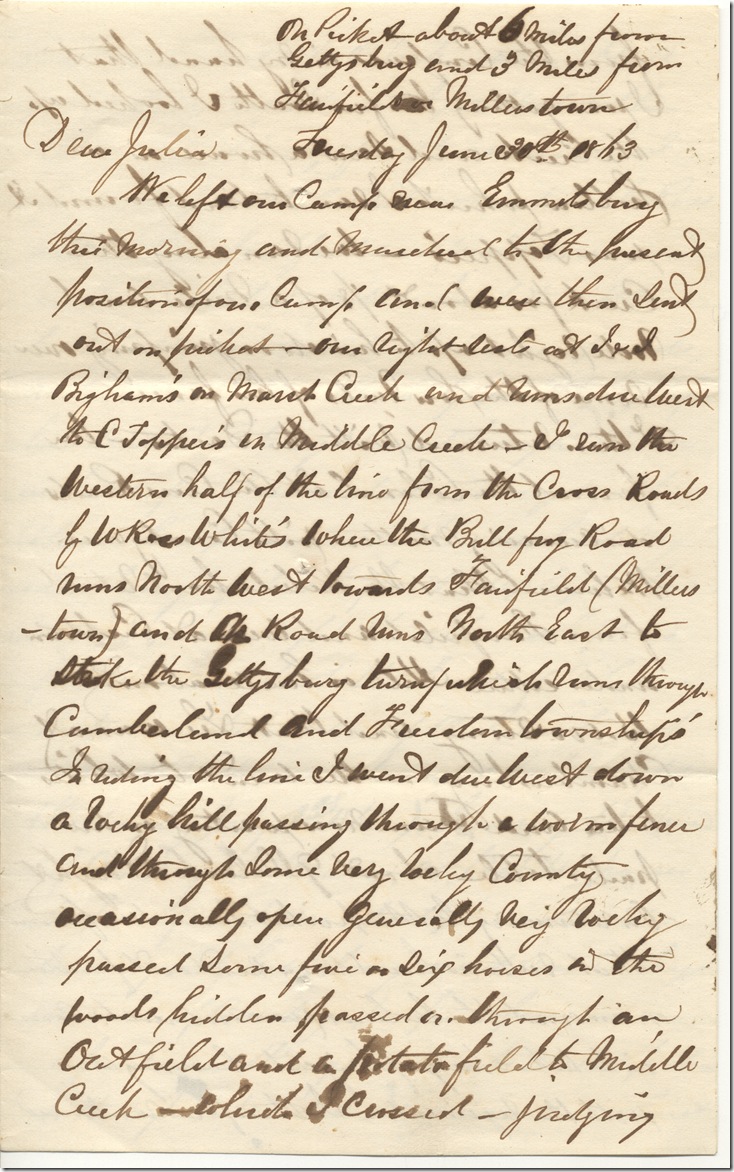
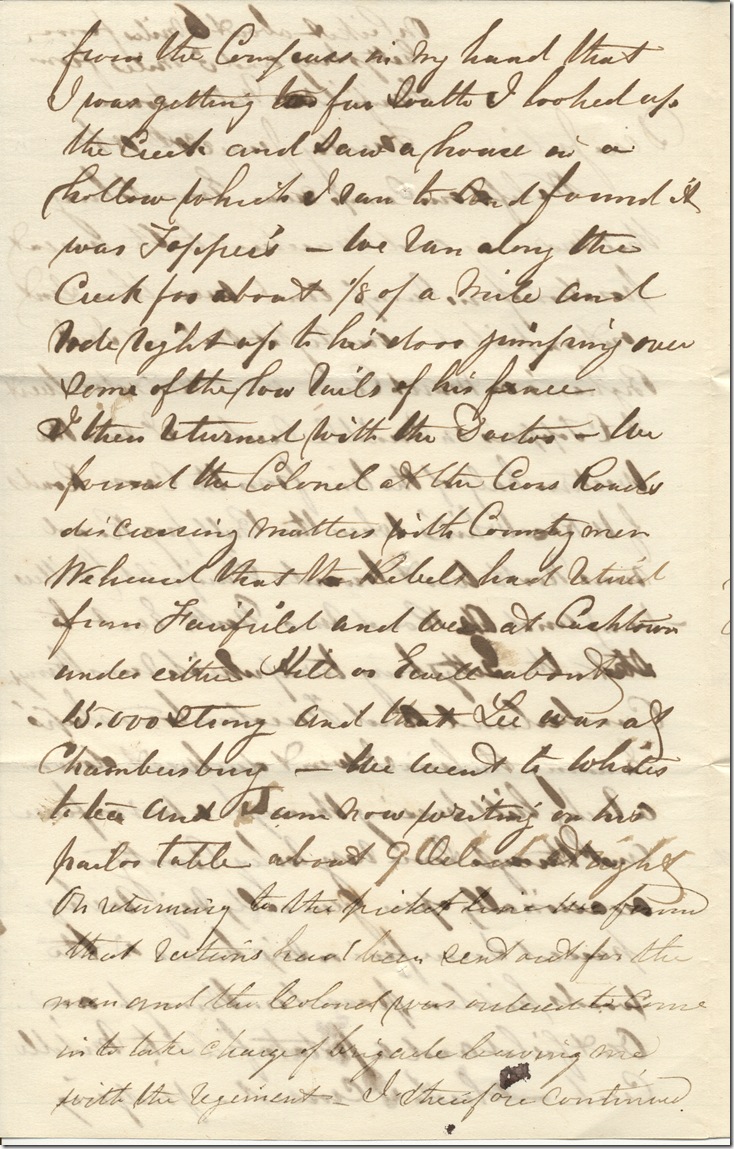
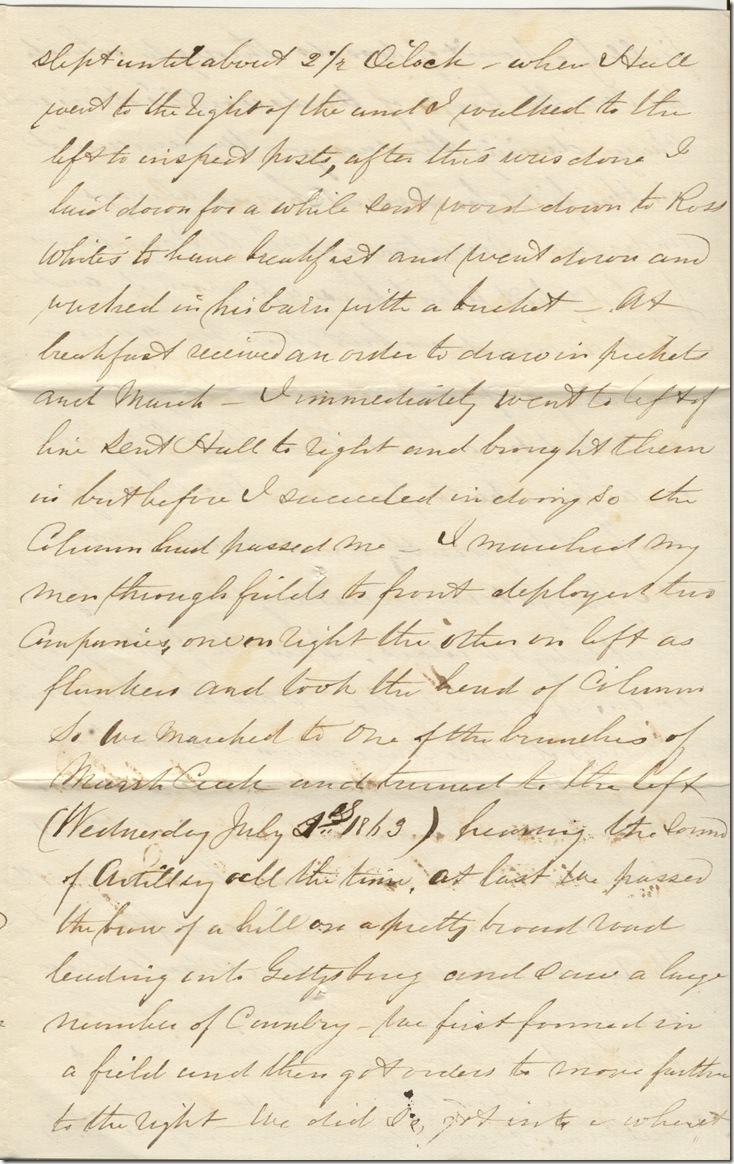
Transcript:
On Picket about 6 miles from
Gettysburg and 3 miles from
Fairfield or Millerstown
Tuesday June 30th 1863
Dear Julia
We left our Camp near Emmitsburg this morning and marched to the present position of our Camp and were then sent out on picket – our right rests at I & I Brigham’s on Marsh Creek and runs due west to C Toppers on Middle Creek- I ran the western half of the line from the Cross Roads by W Ross White’s where the Bullfrog Road runs north west towards Fairfield (Millerstown) and the Road runs North East to strike the Gettysburg turnp which runs through Cumberland and Freedom townships. In riding the line I went due West down a rocky hill passing through a worm fence and through some very rocky Country occasionally open generally very rocky passed Some five or six horses in the woods hidden, passed on through an oatfield and a potato field to Middle Creek which I crossed – judging from the Compass in my hand that I was getting too far south I looked up the Creek and saw a house in a hollow which I ran to and found it was Topper’s – we ran along the Creek for about 1/8 of a mile and rode right up to his door jumping over some of the low rails of his fence. I then returned with the Doctor – we found the Colonel at the Cross Roads discussing matters with Country men. We heard that the Rebels had retired from Fairfield and were at Cashtown under either Hill or Ewell about 15,000 strong and that Lee was at Chambersburg – we went to White’s to tea and I am now writing on his parlor table about 9 Oclock at night. on returning to the picket line we found that rations had been sent out for the men and the Colonel was ordered to come in to take charge of brigade, leaving me with the regiment- I therefore continued slept until about 2 1/2 O’clock- when Hall went to the right of the line and I walked to the left to inspect posts, after this was done I laid down for a while, sent word down to Ross White’s to have breakfast and went down and washed in his barn with a bucket- . At breakfast I received an order to draw in pickets and march- I immediately went to the left of the line, sent Hall to the right and brought them in but before I succeeded in doing so the [Column?] had passed me- I marched my men through fields to the front, deployed two Companies, one on the right, the other on the left as flankers and took the head of the column. So we marched to one of the branches of Marsh Creek and turned to the left
Citation: Alexander Biddle (1819-1899), autograph letter signed to Julia Williams Rush Biddle. 30 June 1863 Rush:IV:30:33
